Vanda Felbab-Brown testified before the Senate Caucus on International Narcotics Control on November 17, 2021 during its hearing on “The Nexus between the Illicit Drug Trade and Corruption.” Video of the hearing can be found here. Below is an excerpt from Felbab-Brown’s written testimony; her full written testimony is available in the downloadable PDF.
Senator Whitehouse, Senator Grassley, and Distinguished Members of the Senate Drug Caucus:
I am honored to have this opportunity to address the Caucus on the important issue of the relationship between the drug trade and corruption and U.S anti-corruption efforts. Illicit economies, such as the drug trade, organized crime, corruption, and their impacts on U.S. and local security issues around the world are the domain of my work and the subject of several of the books I have written. I have conducted fieldwork on these issues in Latin America, Asia, and Africa. For example, I have recently spent several weeks studying the impact of the illegal drug trade, criminal groups, and corruption in Mexico. I speak to you today virtually from Iraq where I have also studied the relationship between militancy, illegal economies, and state-building. I will focus my comments on the general dynamics of the drug-corruption nexus and provide illustrations from Mexico, Colombia, Afghanistan, Myanmar, and other settings. I will conclude with implications for U.S. policy for dealing with this difficult and complex problem.
The Biden administration’s statement of drug policy priorities for its first year released on April 1, 2020 is a praiseworthy document.1 In terms of supply reduction, the plan details six primary lines of effort, two of which are 1) working with key partners in the Western Hemisphere, such as Mexico and Colombia, and 2) engaging China, India, and other source countries to disrupt the flow of synthetic drugs and their precursors. Significantly, the section on working with partners in the Western Hemisphere emphasizes a comprehensive response of deepening bilateral cooperation on public health approaches, expanding effective state presence, developing infrastructure, and ensuring respect for the rule of law and human rights. Across a variety of policy domains, the Biden administration has also recognized and strongly emphasizes the need to tackle corruption. This is also essential in being able to implement effective drug policies abroad.
Persistence of vast illegal economies, such as the drug economy, often strongly exacerbates corruption and undermines rule of law. Corruption in turn undermines counternarcotics efforts – whether they are interdiction of drug trafficking networks, as has often been the case in Mexico or Honduras, or efforts to build up legal livelihoods for marginalized populations cultivating illegal economies as government officials, vested interests, and exclusionary elites as has at various times been the case in Colombia.
Effectively addressing corruption is vital for the effectiveness of all forms of counternarcotics policies. Yet it is also complex, with one anti-corruption strategy not fitting all settings. It can also be a monumental task profoundly reshaping local and even national political arrangements in a country, not merely a technical undertaking.
In almost every country, there will be some corrupt individuals in law enforcement or government roles.
Yet in some settings, corruption systematically pervades all layers of government and all law enforcement institutions, a situation that may well have persisted for decades.
In such settings, the relationship with illicit economies and organized crime groups and political arrangements are often mutually constitutive. Thus, measures and strategies against the illegal drug economy, other illicit economies, and predatory criminality, or their absence, also need to be understood as profoundly political efforts.
In such circumstances, anti-crime and anti-corruption efforts are thus not merely technical interventions and assistance to strengthen institutions and civil society; they are projects in reorganizing local political arrangements and local balances of power.
Conversely, their effectiveness is thus also a function of relative balances of power and the long-term wherewithal and capacities of the would-be reformers, internal or external. If they are treated as merely technical efforts to reform the law enforcement or justice sector and ignore the political realities of country and of how they change local balances of power, they will be at best ineffective in effectively countering drug economies and at worst can weaken a desirable political order and intensify conflict.
In many countries, political patronage strongly overlapping with pervasive corruption, is a defining feature of political processes and arrangements, a situation that limits the ability to mount either counternarcotics policies or anti-corruption efforts. Such an analytical premise needs to shape the design of policy in both domains.
Moreover, settings of violent conflict and counterinsurgency or counterterrorism efforts, such as in Afghanistan between 2001 and 2021, or very highly violent criminality, such as in Mexico over the past two decades, add further complexity to the relationship between corruption, illicit economies, and political arrangements and additional complications for the design of counternarcotics and anti-corruption strategies.
Finally, in some circumstances, such as in Venezuela, North Korea, or Myanmar, the entire regime’s survival is dependent on the persistence of exclusionary patronage, corruption, and illegal economies of the drug trade.
Consequently, both counternarcotics and anti-corruption policies need to be pointedly sequenced and prioritized as well as nested within wider diplomatic, development, and in some circumstances, stabilization and military efforts.
-
Footnotes
- “The Biden-Harris Administration’s Statement of Drug Policy Priorities for Year One,” (Washington, DC: Executive Office of the President, Office of National Drug Control Policy, 2021), https://www.whitehouse.gov/wp-content/uploads/2021/03/BidenHarris-Statement-of-Drug-Policy-Priorities-April-1.pdf?fbclid=IwAR2TBk34U_XRqlqK_pAYnUd_9f7zY3IbCQI9KxI6S5eYeRJdFzl9B09hZ84.
The Brookings Institution is committed to quality, independence, and impact.
We are supported by a diverse array of funders. In line with our values and policies, each Brookings publication represents the sole views of its author(s).
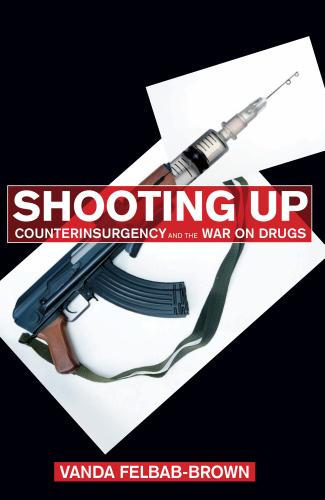
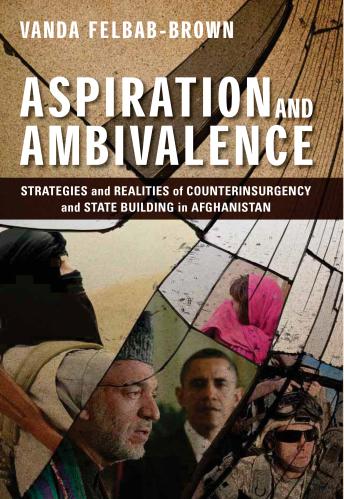

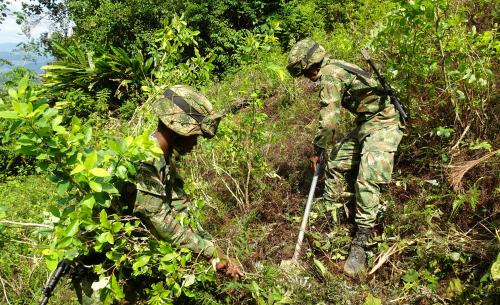
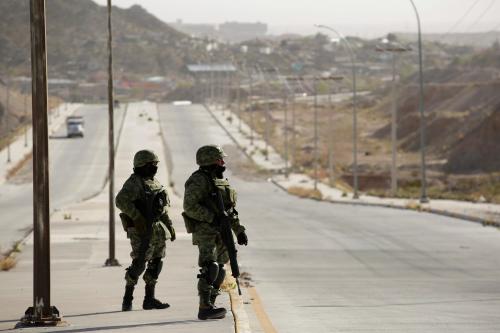

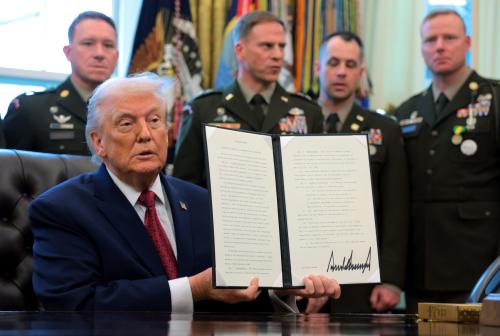

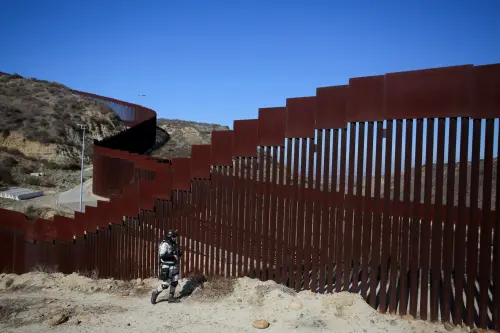
Commentary
TestimonyThe nexus between the illicit narcotics trade and corruption
November 17, 2021